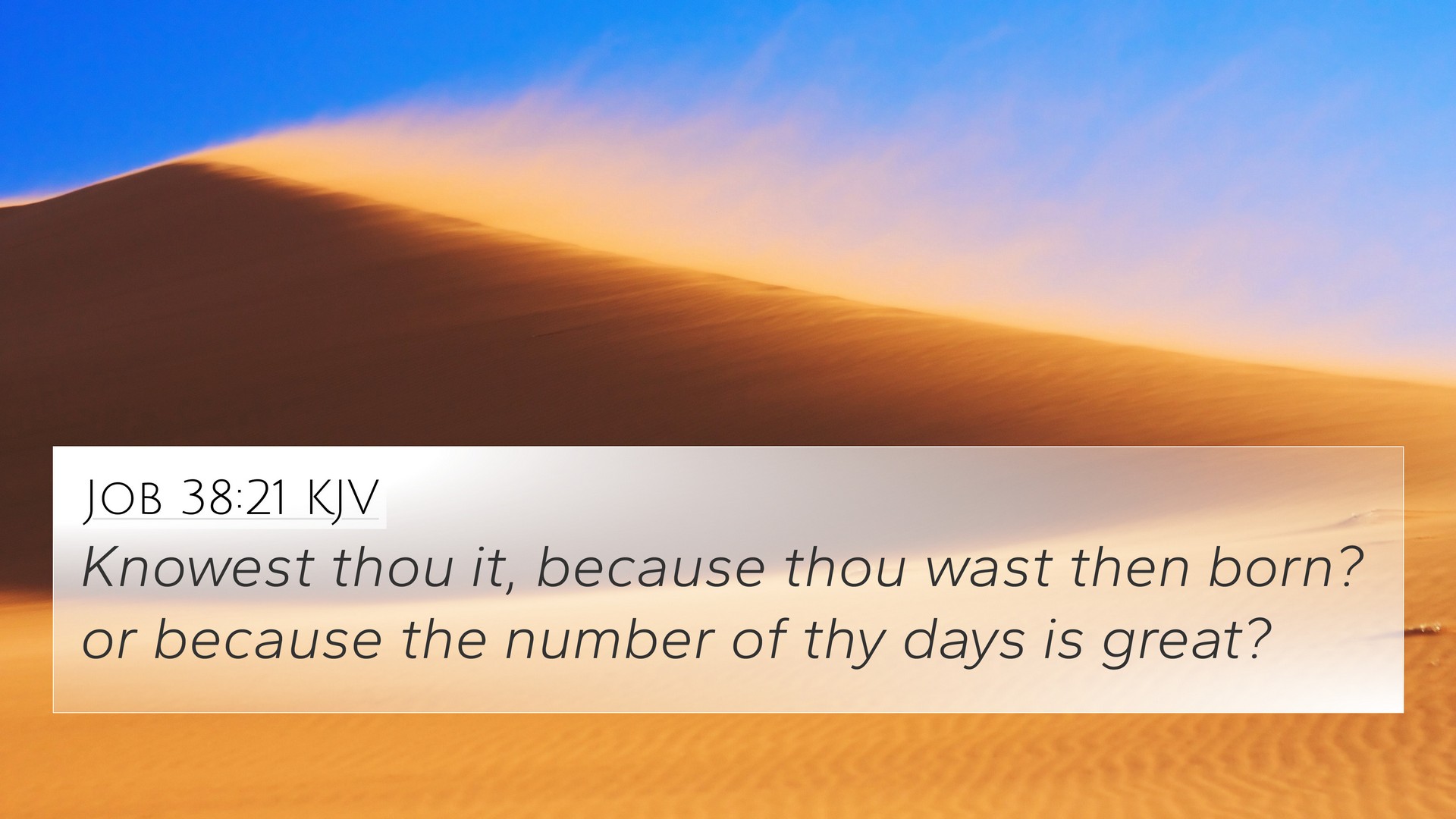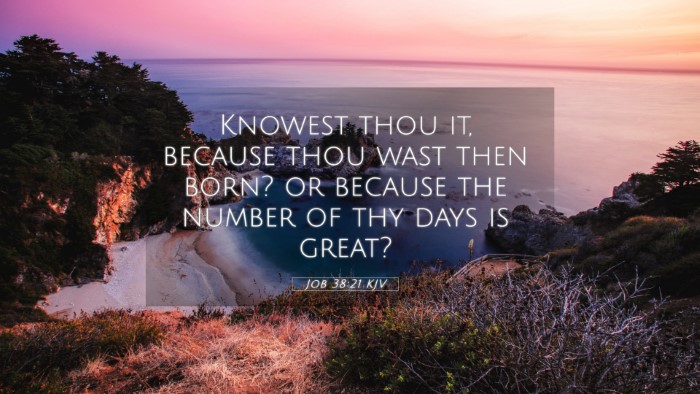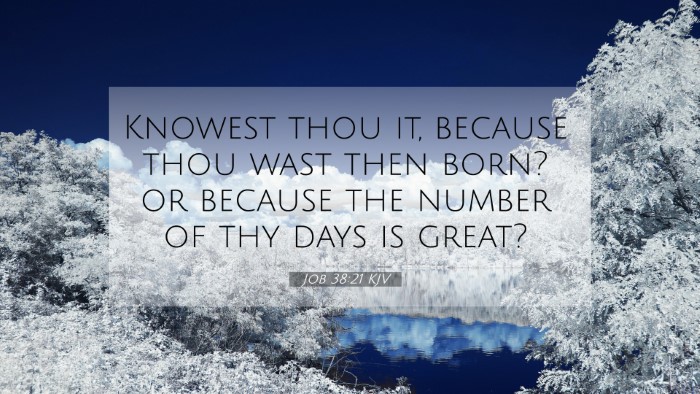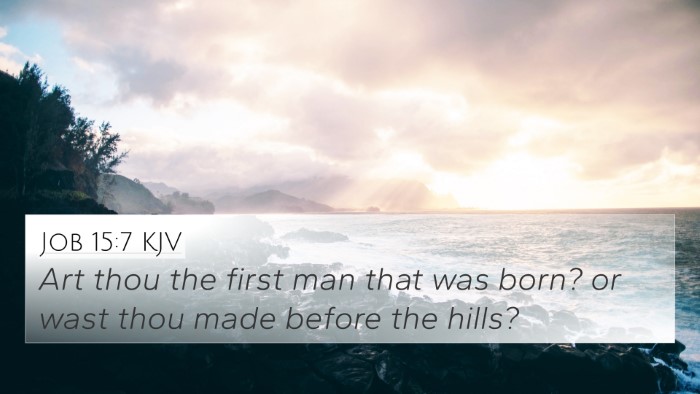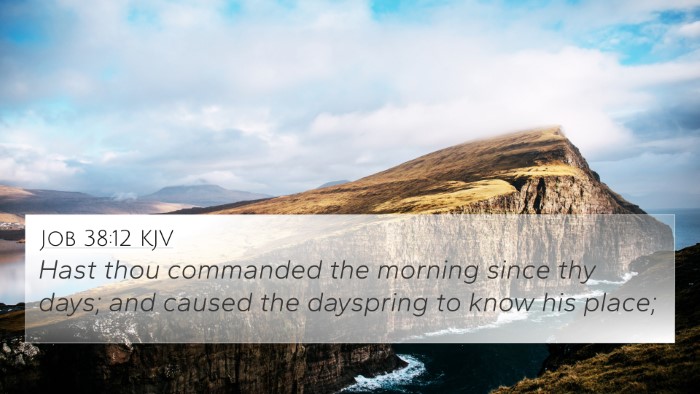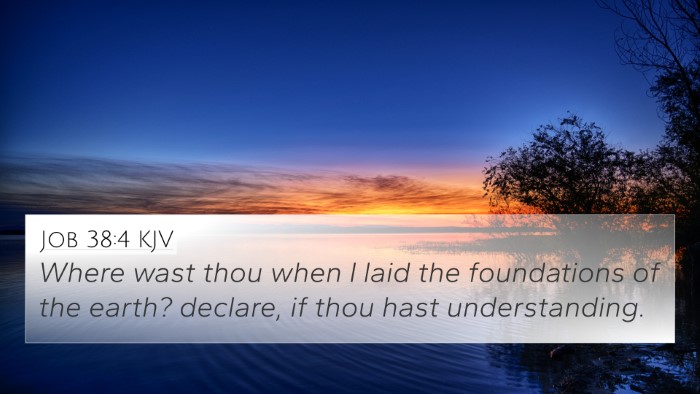Understanding Job 38:21
Job 38:21 reads: "Knowest thou it, because thou wast then born? or because the number of thy days is great?" This verse is part of God's response to Job, emphasizing His omniscience and the limitations of human understanding.
Summary of Meaning
In this verse, God challenges Job by highlighting the vastness of divine knowledge, particularly regarding the creation and governance of the universe. The rhetorical questions serve to remind Job that he was not present at the creation and cannot fully comprehend the mysteries of God's creation.
Commentary Insights
Matthew Henry's Commentary
Matthew Henry articulates that God, in this response, is asserting His sovereignty and wisdom. By questioning Job, He implies that no human being can claim to know the workings of the universe or the divine plan. Henry emphasizes the importance of humility in our approach to understanding God's ways, underscoring that our temporal existence does not grant us insights into eternal truths.
Albert Barnes' Notes
Albert Barnes notes that the verse highlights the limitations of Job's knowledge compared to God's eternal wisdom. The phrase "because thou wast then born" serves to question Job's authority to speak on matters beyond human comprehension. This commentary points out that the omniscient God alone possesses the knowledge of creation's intricate details.
Adam Clarke's Commentary
Adam Clarke elaborates that God's inquiry reflects the ignorance of humanity regarding divine matters. Clarke remarks on the irony that Job, who has been suffering and questioning God, is being reminded of his own human frailty and the boundaries of his existence. The question serves as a prompt for Job to recognize his position and the vastness of God's understanding.
Cross-References
This verse can be cross-referenced with several other biblical texts that explore themes of divine knowledge and human understanding:
- Job 12:13 - "With God is wisdom and strength, he hath counsel and understanding."
- Isaiah 55:8-9 - "For my thoughts are not your thoughts, neither are your ways my ways, saith the Lord."
- Psalms 139:1-6 - "O Lord, thou hast searched me, and known me."
- Proverbs 3:5-6 - "Trust in the Lord with all thine heart; and lean not unto thine own understanding."
- Romans 11:33 - "O the depth of the riches both of the wisdom and knowledge of God!"
- 1 Corinthians 2:16 - "But we have the mind of Christ."
- Ecclesiastes 3:11 - "He hath made everything beautiful in his time: also he hath set the world in their heart."
- Colossians 1:16-17 - "For by him were all things created, that are in heaven, and that are in earth, visible and invisible."
- Psalms 46:10 - "Be still, and know that I am God."
- Matthew 11:25 - "I thank thee, O Father, Lord of heaven and earth, because thou hast hid these things from the wise and prudent, and hast revealed them unto babes."
Thematic Connections
The themes present in Job 38:21 foster a deeper understanding of the relationship between divine wisdom and human understanding. Key themes to explore include:
- Divine Sovereignty - The recognition of God as the ultimate authority over creation.
- Human Limitations - Acknowledging our finite understanding compared to God's infinite wisdom。
- The Search for Knowledge - How humans pursue understanding yet often fall short.
- Faith amidst Suffering - Trusting God when faced with incomprehensible circumstances.
Conclusion
Job 38:21 serves as a profound reminder of the vast difference between divine knowledge and human understanding. By examining this verse and its connections, we can appreciate the importance of Scriptural cross-referencing to deepen our understanding of God's nature and our place in His creation.
Additional Resources for Cross-Referencing
For those interested in exploring more about connecting themes and verses, consider utilizing:
- Bible concordances to uncover the relationships between Scriptures.
- Cross-reference Bible study guides to facilitate thematic exploration.
- Tools for Bible cross-referencing, which can enhance personal study or sermon preparation.
